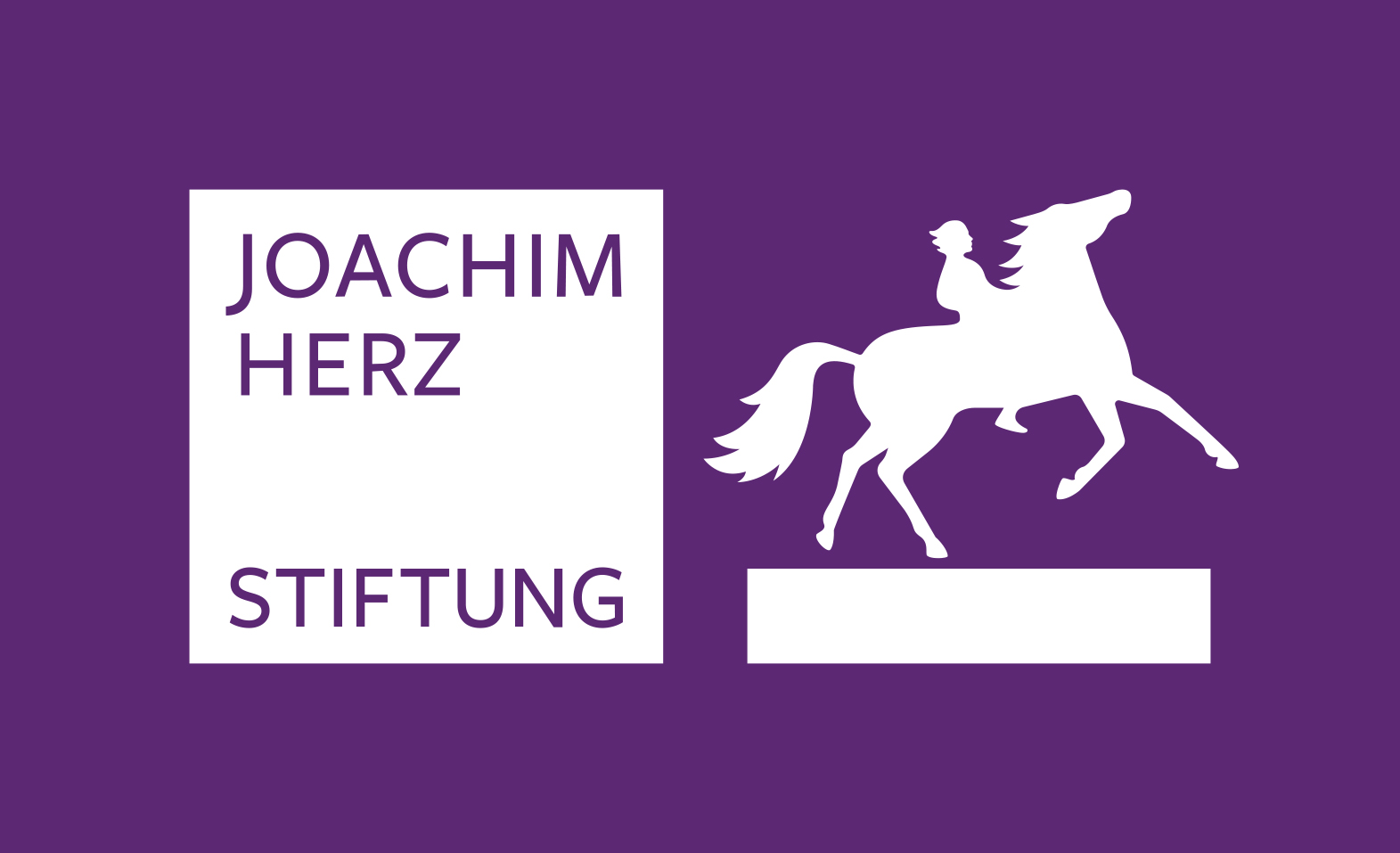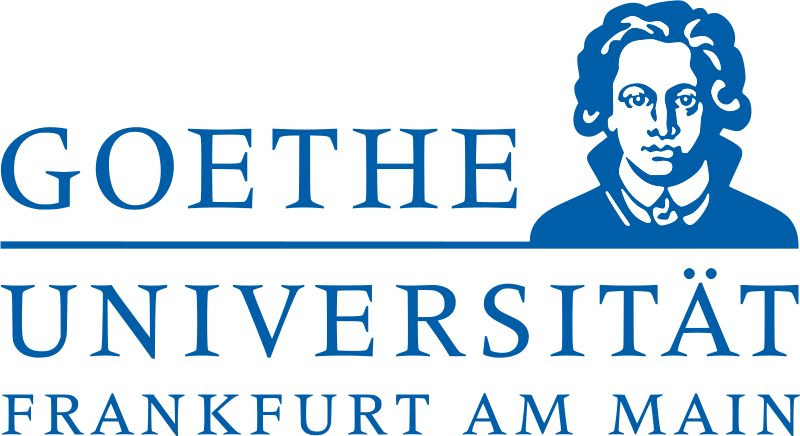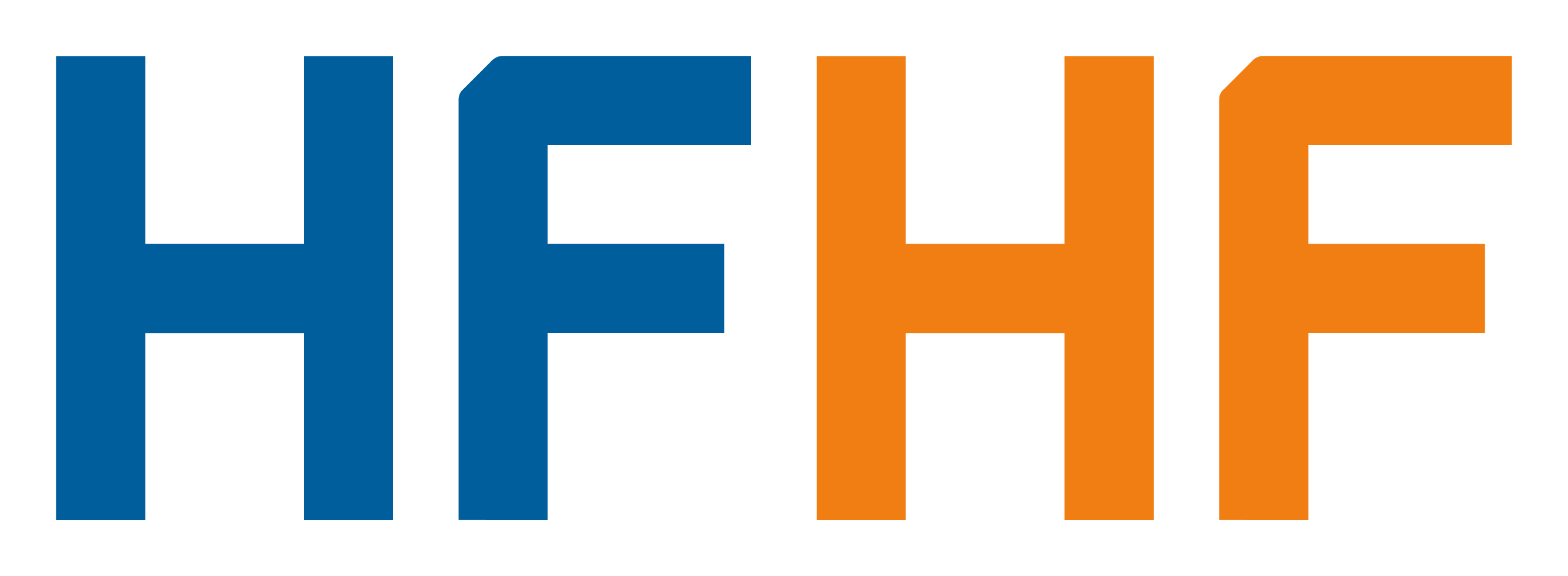SCI-COM-E 2023
July 19-21, 2023, Frankfurt am Main, Germany
NETWORK
The goal of the 2023 edition of the SCI-COM-E Meeting is to connect fellow science communicators with each other and enable future common projects. Thus the topic of 2023 – NETWORK.
Application
Application to SCI-COM-E is closed.
Program
July 19, 2023
14:00 – 16:00
This session is dedicated to open the conference, get to know who is there and to network in a slightly different manner.
16:00 – 16:30
Coffee Break, next to the main lecture hall
16:30 – 18:00
Artificial Intelligence (AI) is transforming the world, but what exactly is it, and how does it work? This beginner-friendly talk breaks down the basics of AI, demystifying key concepts such as machine learning, neural networks, and generative AI. Using real-world examples and simple explanations, we’ll explore how AI is already shaping our daily lives, from recommendation algorithms to chatbots and self-driving cars. No prior technical knowledge is required. This session is designed for anyone curious about AI and eager to understand its potential, limitations, and implications for the future.
This presentation explores the evolving role of generative AI in science communication, examining its potential as both a powerful tool and a disruptive force. AI can enhance efficiency in creating engaging and informative content, yet it also raises concerns about its impact on the professional relevance of science communicators. The discussion covers AI as a tool for communication, a potential replacement for certain tasks, and a subject of inquiry regarding its mechanisms, limitations, and societal influence.
Key questions are addressed, such as understanding how specific AI tools function, their limitations, and the expertise required for effective use. Additionally, the presentation examines AI’s impact on human information processing and the broader informational ecosystem. Seven critical pitfalls for science communicators are identified, including the risks of over-reliance on AI-generated content, the influence of marketing hype, and misconceptions about AI’s capabilities. By highlighting these challenges and opportunities, the presentation provides insights into maintaining ethical, accurate, and impactful science communication in an AI-driven landscape.
18:30
Informal reception at the “Sommergarten” of Goethe University
July 20, 2023
09:00 – 10:30
YouTube has become a powerful platform for science communication, offering a unique space to explore and share insights about the brain. This talk examines how neuroscience content thrives on YouTube, from educational channels to viral brain myths. We’ll discuss strategies for engaging audiences, simplifying complex topics without losing accuracy, and navigating challenges like misinformation. Whether you’re a scientist, educator, or science enthusiast, this session will provide practical insights into leveraging YouTube to make neuroscience accessible, engaging, and impactful. (LiveStream)
Understanding the intricate structures and functions of a living cell is a challenge for both researchers and educators. To bridge this gap, the Max Planck Institute for Biophysics has developed an Augmented Reality (AR) app that brings cellular biology to life. This talk will showcase how the app enables users to explore a 3D model of a cell, providing an immersive learning experience for students, scientists, and the public.
We will discuss the scientific accuracy behind the visualizations, the app development process, and its potential applications in education, outreach, and research communication. By integrating AR technology with cutting-edge cell biology, this app transforms abstract scientific concepts into tangible, interactive experiences.
10:30 – 11:00
Coffee Break, next to the main lecture hall
11:00 – 12:30
In today’s fast-paced media landscape, scientists and science communicators play a crucial role in shaping public understanding of research and scientific issues. However, engaging with the media requires specific skills to ensure clarity, accuracy, and impact. This talk provides practical strategies for effectively communicating with journalists, preparing for interviews, and navigating common challenges such as misinformation and media framing. Participants will learn how to craft key messages, handle tough questions, and adapt their communication style for different media formats. Whether speaking to the press, participating in panel discussions, or engaging with the public online, this session equips scientists and communicators with the tools to make their voices heard confidently and effectively.
12:30 – 14:00
Self-organized lunch on campus
14:00 – 16:00
Science and art are often seen as separate worlds, yet both rely on creativity, exploration, and a desire to understand the unknown. This interactive podium discussion brings together scientists and artists to explore the deep connections between these disciplines. How can artistic expression enhance scientific communication? In what ways does scientific discovery inspire art? And where do these fields intersect in shaping our perception of the world?
This session invites attendees to contribute their perspectives, challenge boundaries, and explore new ways of integrating science and art.
16:00 – 16:30
Coffee Break, next to the main lecture hall
16:30 – 18:00
Humor is a powerful tool for engaging audiences, making complex scientific concepts more accessible, and breaking down barriers between experts and the public. But how can scientists and communicators use humor effectively without oversimplifying or distorting information? This talk explores the role of humor in science communication, from witty metaphors and storytelling to the strategic use of irony and satire. Through real-world examples and interactive discussion, we’ll examine how humor can enhance public engagement, build trust, and make science more relatable while also addressing potential pitfalls.
19:00
Common reception in Frankfurt downtown
July 21, 2023
09:00 – 10:30
Clear and accurate communication is essential in science, yet errors and misunderstandings are common both among scientists and between science and the public. This talk explores the most frequent communication pitfalls in scientific discourse, from overly complex jargon and misinterpretation of data to sensationalism and misleading simplifications. Through real-world examples, we’ll examine how communication breakdowns occur, their consequences, and strategies to avoid them. Whether writing a research paper, giving a public talk, or engaging with the media, understanding these errors can help scientists and communicators convey their messages more effectively, fostering trust and clarity in scientific dialogue.
10:30 – 11:00
Coffee Break, next to the main lecture hall
11:00 – 12:30
An opportunity for students who attended the ES3C and the SCI-COM-E 2023 to present their science communication projects and ideas. No abstract needed, short notice presentations are also encouraged.
12:30 – 14:00
Self-organized lunch on campus
14:00 – 16:00
Most workshops and conferences end with a summary what happened. We will turn that around and try to look into the future. After a short wrap-up and clarifying any remaining questions or finishing any unfinished discussions we discuss how to proceed further and make the most of the newly built network.
Lecturers
The SCI-COM-E will feature experienced science communicators who will cover a broad range of science communication formats.
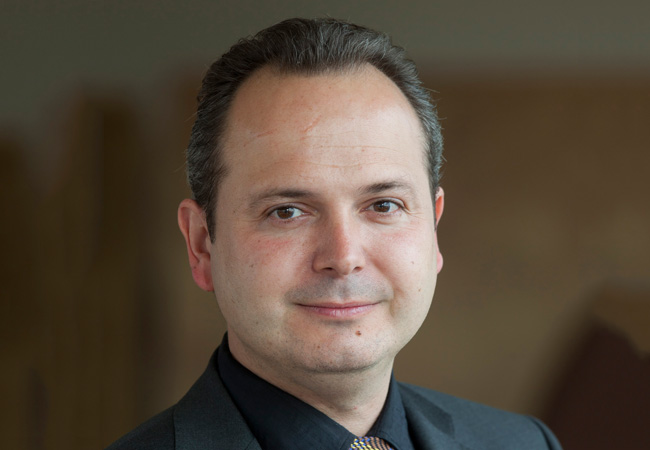
Marcus Bleicher is a professor for Theoretical Physics at the Goethe University in Frankfurt. Being the head of various research programs he is interested in getting the science out of the ivory tower into the public – mostly in the digital space.
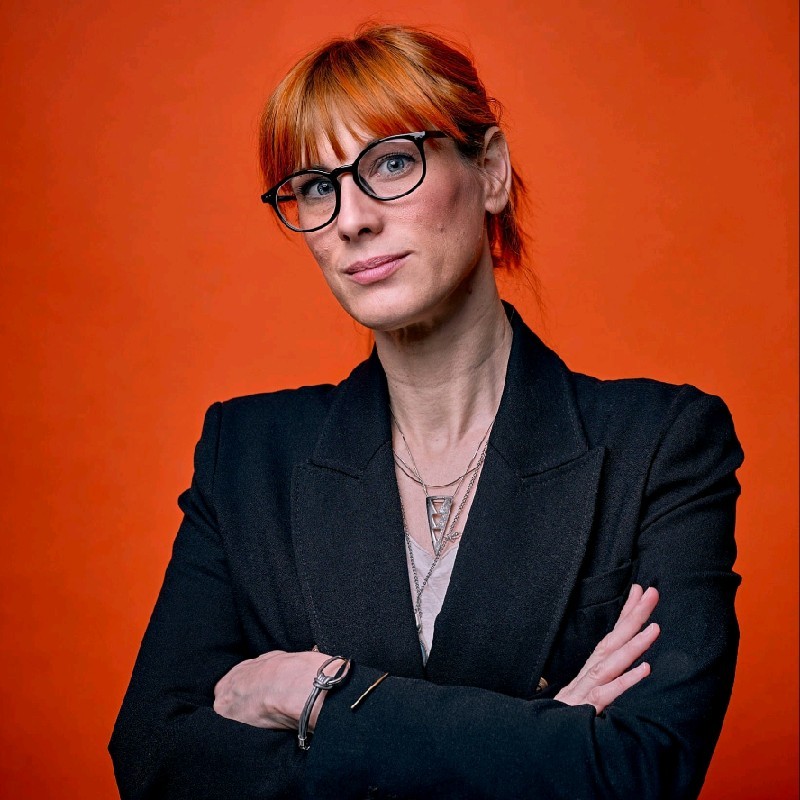
Petra Buljević is a communication professional based in Croatia, currently working in the Office of the Director General at the Ruđer Bošković Institute. She plays a key role in facilitating the institute’s strategic and operational initiatives. Her work contributes to the institute’s mission of advancing scientific research and fostering collaboration within the scientific community.
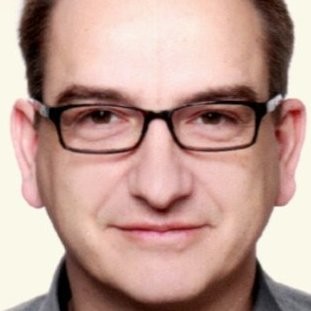
Michael Christen is a seasoned open-source developer and search engine creator, renowned for founding and maintaining YaCy, a decentralized search engine. He is also the maintainer of SUSI.AI, an open-source conversational AI. His work focuses on AI in information retrieval.
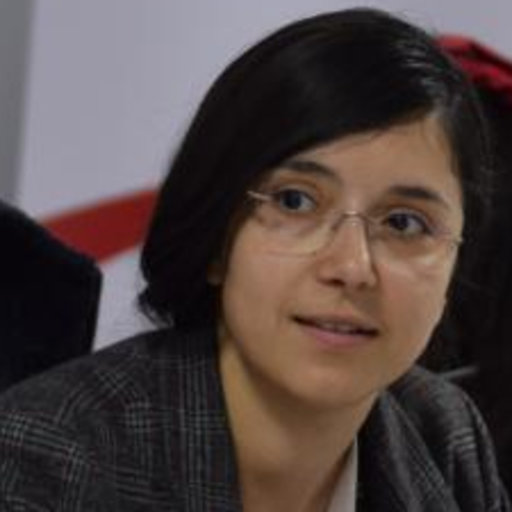
Ioana Grancea is a lecturer in the Department of Philosophy at Alexandru Ioan Cuza University of Iași, Romania. Her research focuses on communication science, with particular interest in visual argumentation and the ethical dimensions of persuasive imagery.
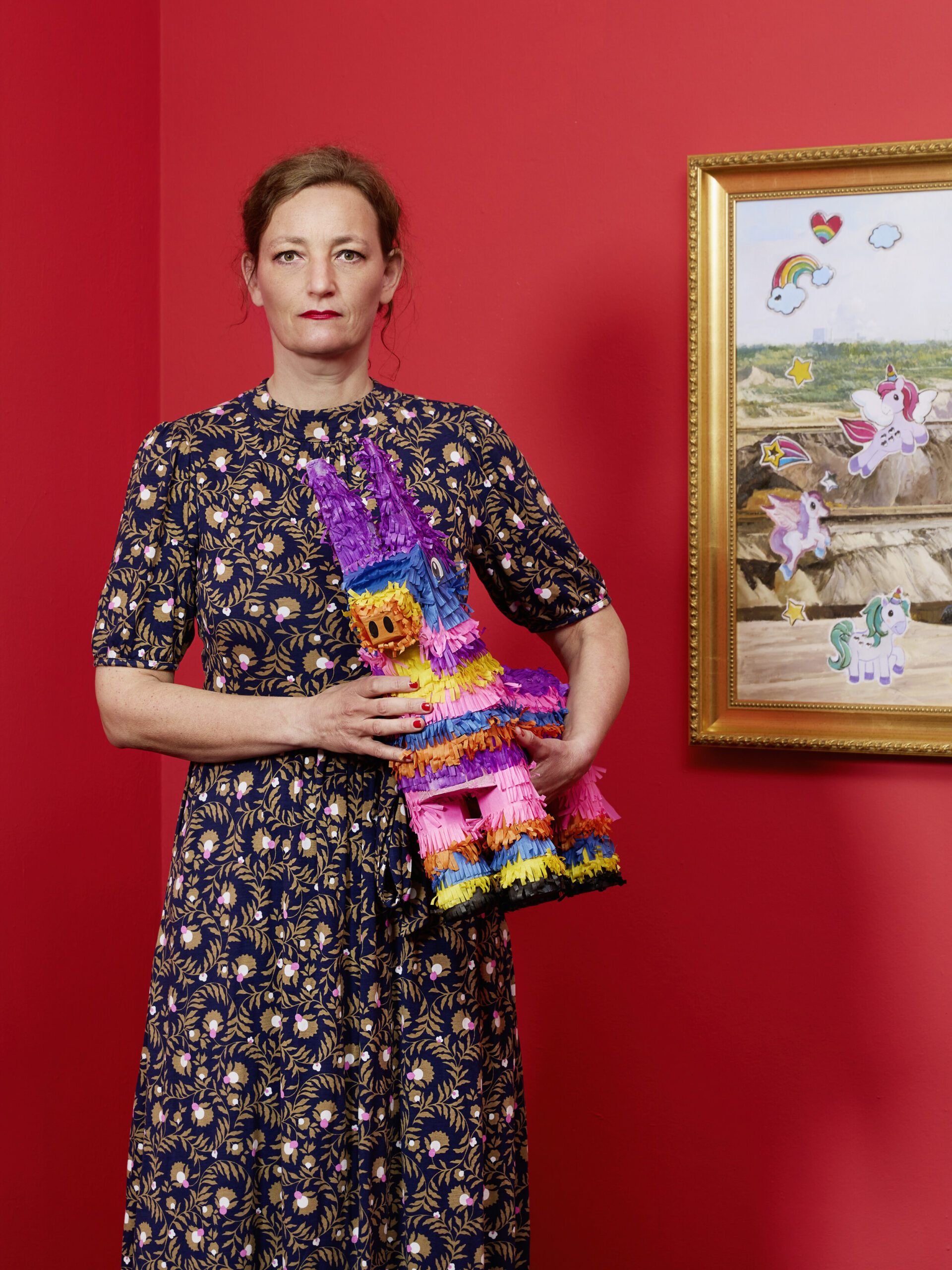
Swaantje Güntzel is a conceptual artist based in Hamburg. With a background in ethnology and fine arts, she has been addressing the environmental impact of human activity for nearly two decades. Her interdisciplinary work spans performance, sculpture, photography, and installations, tackling global issues such as climate change, plastic pollution, and biodiversity loss.
Swaantje frequently collaborates with scientists from various disciplines, aiming to bridge the gap between art and science. Her work has been exhibited internationally, including at the Austrian Sculpture Park in Graz and the Museum of Fine Arts in Leipzig. In 2023, she presented a major retrospective titled “Instant Paradise” at the Stadtgalerie Villa Dessauer in Bamberg.
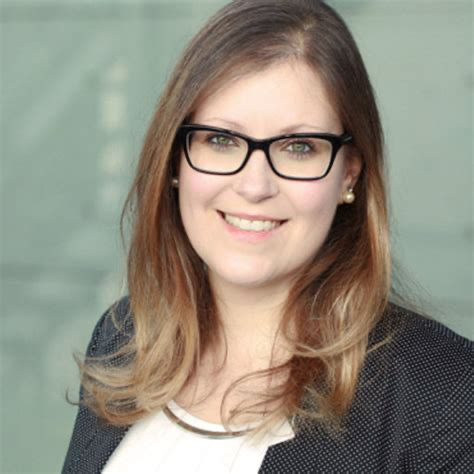
Katharina Käfer is a science communicator and researcher who serves as the Press and Public Relations Officer and Graduate Program Coordinator at the Max Planck Institute of Biophysics in Frankfurt am Main, Germany. In this role, she manages the institute’s public relations and coordinated the International Max Planck Research School on Cellular Biophysics (IMPRS-CBP).
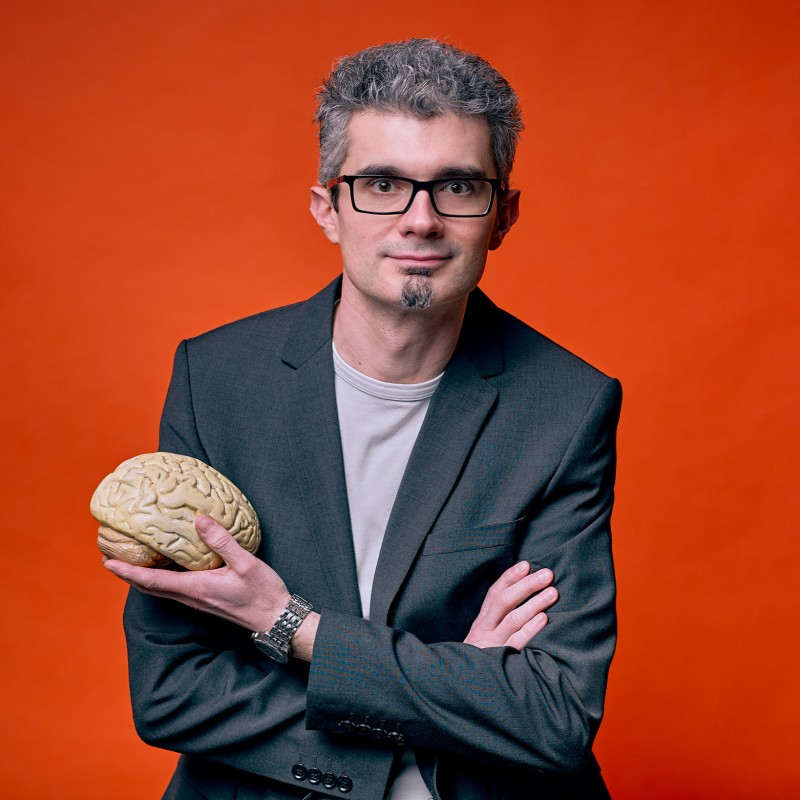
Marko Košiček is the Coordinator of Science Popularization at the Ruđer Bošković Institute in Zagreb, where he leads outreach activities, organizes public engagement initiatives, and collaborates with schools, NGOs, and industry partners.
With a background in chemistry, he spent a decade as a researcher studying the molecular mechanisms of Alzheimer’s disease before shifting his focus to science communication. His passion for engaging the public led him to win the Croatian and international FameLab competition, host the popular science TV show Third Element, and play a key role in major outreach events like the Science Festival, Science Picnic, and Researchers’ Night.
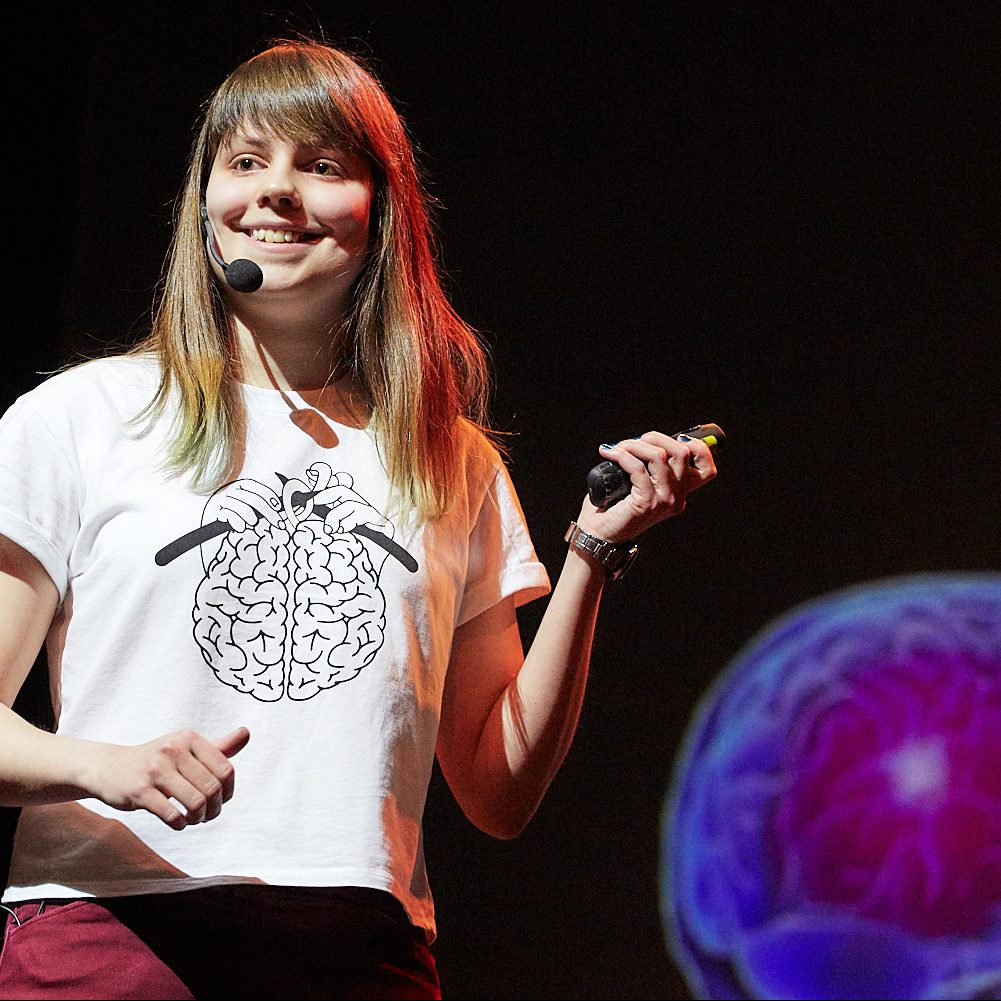
Polina Krivykh is a cognitive neuroscientist specializing in psychophysiology. She is pursuing her studies at the Sagol School of Neuroscience at Tel Aviv University and conducting research in the Visual Working Memory Lab. Her research interests included the cognitive placebo effect and the interactions between visual working memory and attention. In addition to her academic work, Polina is an active science communicator. She actively shares insights on neuroscience and psychology through various platforms.
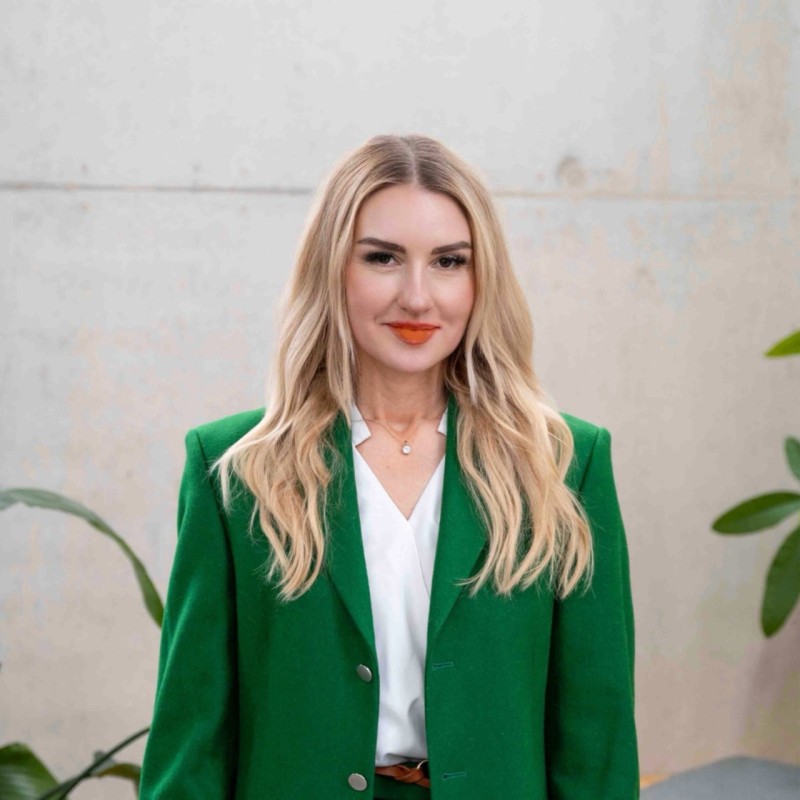
Emilia Miller is running SCINECT, an agency dedicated to transforming science communication. With a mission to bring science out of the academic bubble, she collaborates with researchers and institutions to make scientific knowledge more accessible and engaging to the public. Emilia is also known for her active presence on social media, where she shares insights and strategies on effective science communication. Her passion and innovative approach are helping to reshape how science connects with society.
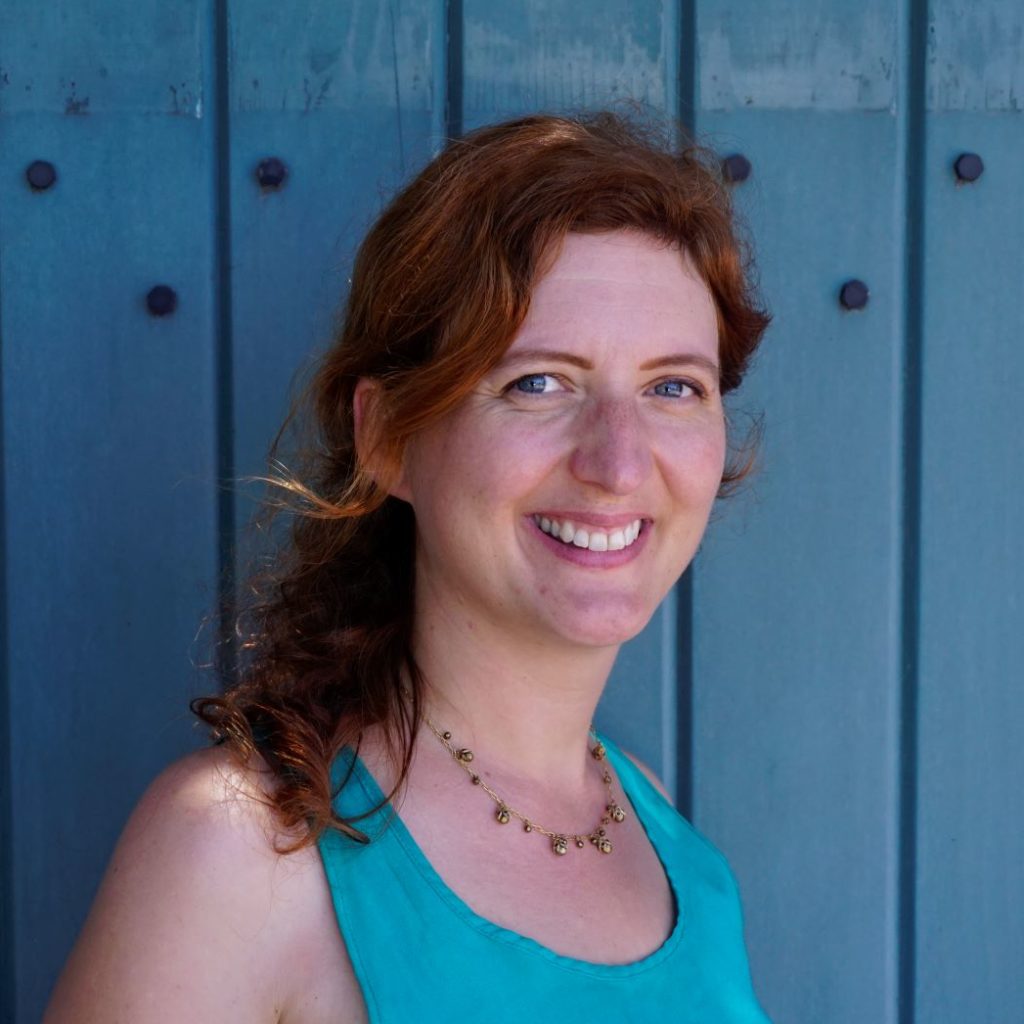
Ariane Pessentheiner is a researcher and science communicator with a background in molecular biology. She has been involved in various projects bridging scientific research and public engagement, making complex biological concepts more accessible to wider audiences. With experience in both academia and outreach, she is passionate about fostering dialogue between scientists and the public. Her work includes developing innovative science communication formats, organizing educational initiatives, and contributing to interdisciplinary collaborations that connect science with society.
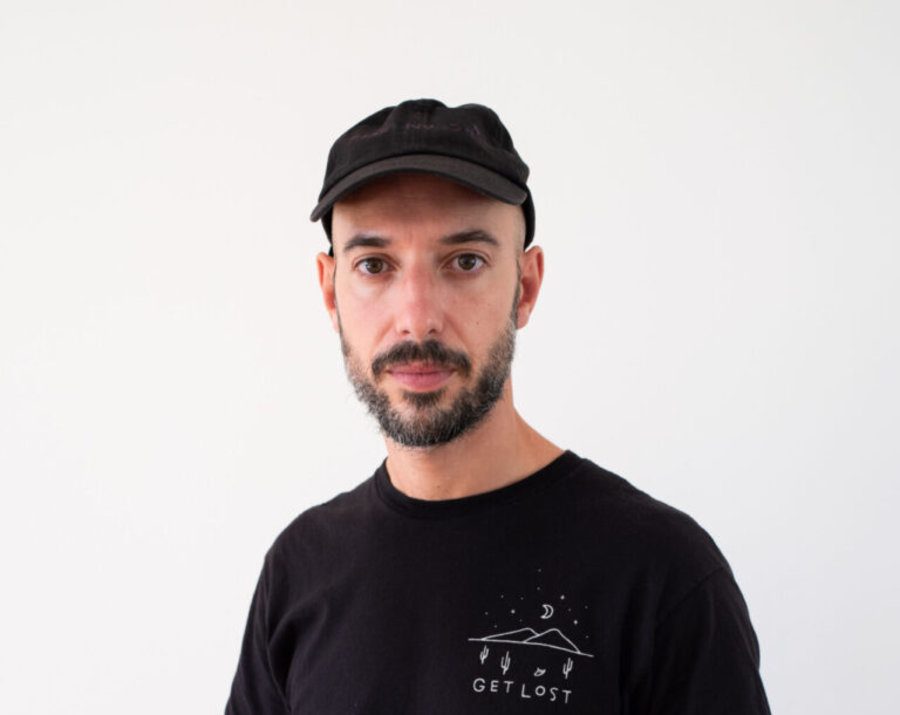
Luca Spano is an Italian multidisciplinary artist whose work delves into the intersections of reality, perception, and the unseen. Holding a BA in Communication Sciences from La Sapienza University in Rome, an MA in Photography from the London College of Communication, and an MFA in Visual Arts from Cornell University, Spano’s diverse educational background informs his artistic practice.
Spano’s art often explores the boundaries between the visible and invisible, investigating the biological and technological limits of sight. His project “After the Last Image” examines these themes, culminating in both an exhibition at the MAN Museum in Nuoro and a publication by Mousse Publishing. This work reflects his interest in how images shape our understanding of reality and the potential of art to reveal what lies beyond immediate perception.
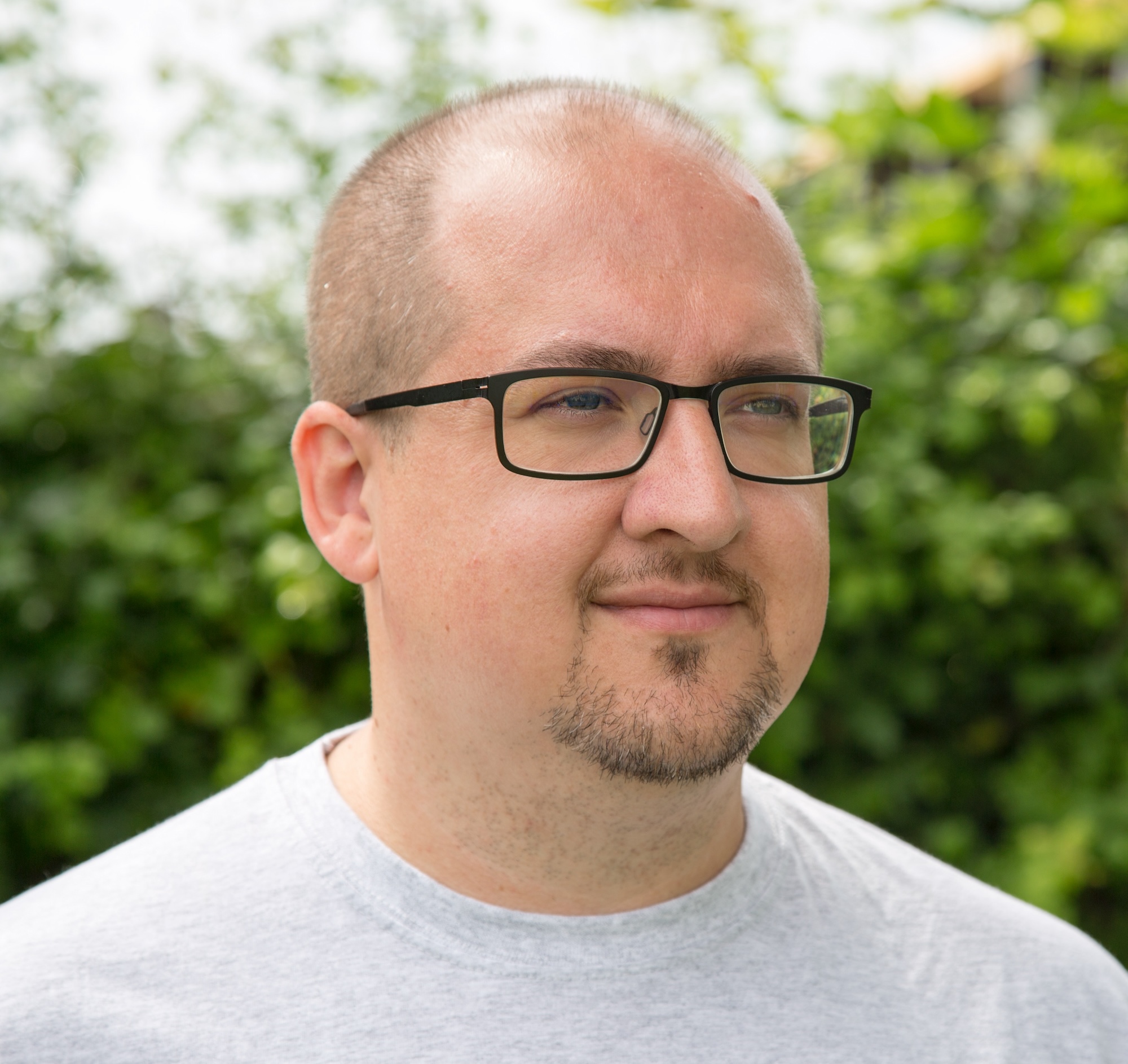
Sascha Vogel is a theoretical physicist and science communicator, with a background in nuclear and particle physics. His career started in science, then he went to science management and ended up in science communication. He founded an agency for science communication, which successfully runs projects and workshops since 2019.
As a trainer and speaker, Sascha specializes in science communication, presentations and career development.
With years of experience in academic research, industry, and public engagement, Sascha understands both the scientific and communication challenges researchers face. His workshops equip participants with practical tools and strategies to enhance their communication skills, whether for conferences, media interactions, or public outreach.
Confirmation will connect to a third party service, subject to its own independent privacy policy!
Venue
Partners
The SCI-COM-E would not be possible without its great partners.
